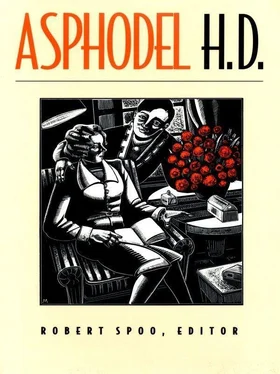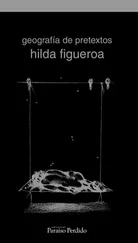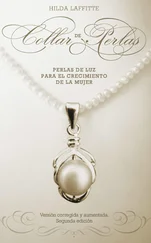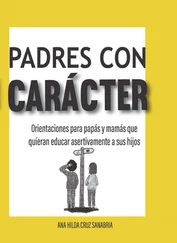“I never saw one in a bed but O my God, it’s just as bad in this bed as the other, how they do bite and the smell is awful. No I don’t mind, Mrs. Rabb. No, I don’t mind but look at that one — O God Fayne, have you had — actually had practice — grr — how horrible — I shall be sick, vomit — horrible. O Clara how could she. And he walked as fast as a horse Fayne said.” Fayne had said the bed-bug walked as fast as a horse and it did rather, climbing the enormous peaks of the stiff rumpled sheet, climbing, tight and fast about his business, rather American, rather Chicago, going on and on, not minding anything. You would think the Mont Blanc of the bed edge where she had squirmed fastidiously a moment since would be his absolute Waterloo, his to be more exact across the Alps lies Italy or was it the other way round, Hannibal rushing up to the Alp that looked insurmountable. This was a veritable Hannibal. But how fast he did walk. Fayne was right. He was walking as fast as a horse. “O Fayne — splendid — I mean horrible — O Fayne — how could you, but how splendid of you like putting your own worm on the hook or pulling your own fish off, takes some kind of grit to smash a bed-bug, what were you saying Clara? But it wasn’t my fault. You should have told me Madame Dupont told us to ask for whatever you said she told of to ask for when you told me to ask for new rooms and where is it? Haven t you got it written down somewhere.”
“The thing to do is to put on all the lights.” “Well, Pauline, Paulet” (Clara would call Fayne, Paulet) “they drag in the mosquitoes and June bugs from outside.” “But they may not have, we don’t know, Mrs. Rabb mosquitoes and June bugs in France, anyhow the peril from within the city, I think is greater than without.” “Its not a thing, Hermione, to laugh at.” “I didn’t. I wasn’t. I mean it is so funny. don’t, don’t please take it so hard, Clara.” “But what to you — is — funny — to — us — is — simply—” “O I know—” Hermione had heard all this before from Clara. “I know Clara. It’s serious. And really I’m not really thinking it funny. But if you will find out what I am to ask for, I’ll go row them again. Don’t get depressed Clara. It will soon be daylight and what an elegant little bug really. He is really no worse than a lady bug, you know fly away home. Lets forget that he is a viper, a monster of obscenity (for he is really). Lets forget he is a very devil and try to think of him as a lady-bird fly away home. You know how tiny and clean they look on a huge cabbage rose. My grandmother used to call them ribbon-roses, not cabbage roses, but the little almost wild ones that grew over the little old— place— at the back of their garden where we used much rather go than to the proper bathroom. Yes, do laugh. Ribbon roses. We can’t afford to be frantic. He’s only a sort of filthy lady-bug gone wrong, turned into a bed bug. Gods ways are inscrutable. No, I’m not hysterical, Josepha. I can’t possibly wake them at half past three in the morning though our clock is a half hour fast, didn’t I tell you. There the chimes again — Christ in Heaven — Christ in Heaven— No, no, no. I’m not being irreligious. Its the tune all the chimes say. Listen to it. In Rouen. All the church towers in Rouen say that simply. Christ in Heaven — Christ in Heav-en (you have to measure it out a little for yourself to suit each hour) keep Jeanne d’Arc safe for — ever. You have to measure it, make it Jeannedarc sometimes and Jean-nne-d-d-d-Arc other times to get the rhythm but you can see how it will work. Have you got the note book but why after all, that was easy enough. De fer . Iron beds, I suppose she meant. I don’t suppose they like these new fangled iron beds. Poor darlings. All collected, concentrated in our picturesque big bedroom. And I don’t think we can stay here for ever anyway. Yes. I think you’re right. We might as well pack now. O — O—O. Tired. Tired. But what Heaven. We’ll see the sun-rise — over — Rouen.”
“News from home — news from home — must go — Rouen lovely. Yes, we love your city. And couldn’t you, please, please, please garçon get us some hot milk and coffee, O please, please. I’m too tired to explain. No my friends aren’t ill simply — well to tell you the truth — we were kept awake — all night. Yes simply eaten.” “But who Mademoiselle could eat you?” “It was them simply. You know. The things we were rowing you about two days ago was it (when was it?) again . Have you got a dictionary? Creatures.” “Impossible. We have none in Rouen.” “Yes but do understand.” O how fish-like his face was but back of it something. He was understanding the whole time and the whole time making a careful calculation, was it worth his while to risk Hell getting them extra rations and what was Mademoiselle likely to tip him. Was the older lady her mother or was she a rather subtle entrepreneuse. He didn’t say, “Is Madame really your mother?” but it was written in every line of his face. What did he mean standing so thin and somehow right in his dirty apron. The garçon had stopped flicking glasses like a very fine actor in some very subtle play. The dawn rode in at the window fine and thin and outside in the narrow patch of garden Rouen lilies raised etherialized delft-blue cups to an invisible aurora. Aurora. Light lay like a crown on Rouen, light suspended in an invisible breath. Light that strode blatant from the sea-edge paused here subtly before embracing day. Light behind Rouen hill, cut off from Rouen. So dawn rose on Agincourt. . where was it? Where was she? This was a play subtle and so exquisite that a breath might blow it away. A play yet back of the dreariest of sordid horrors. “Don’t you see. I really am serious.” “Mademoiselle, could one mistake you?” “I mean seriously. Will you get us something to eat. I know its only half past five. Can’t you see what I tell you is the truth.” “Yes. Creatures do eat you ladies. And leave them very thin, fresh at five in the morning. The thing to do is to order the — well — coffee de consolation — the night before. Say let me have my petit déjeuner at five or six simply. It must be forthcoming. I am taking a train to visit my poor old grandmother in the country and so on. I will try a little to instruct this so serious Miss.” “Wh-aat?” “I mean. Things in beds. Certainly. They do eat—” “O please. Eat. Me. Hungry. Dying. Café au lait. Lots of café. Lots of au lait. No. It doesn’t matter that the little breads aren’t fresh. O please —” Did one offer it francs and how many? One, two or three? Great Milords in novels produced five franc pieces. Clara always did this part of it. One, two or three. She felt cold horror, then hot horror rising to embrace the back of her neck. The shame seemed to reside at the back of her neck and the pit of her stomach. Some symbol. Money was some symbol. French money was more than ever a symbol. “My — my — aunt—” O then one could see the look in his eyes, it wasn’t the mother. “My aunt is waiting. Really will — pay—” How did one say it? “O please, please, here’s two francs. Do bring the coffee quickly.”
Two francs on the edge of the table. A shaft of light on the floor like light falling on an Easter morning altar. The sudden brilliance that was like the falling (oddly not the rising) of a golden curtain. Cloth of gold was suspended for a moment and then rolled a suitable background. A thin face was poised against that background. It might have risen from a pleated ruff. It might have kissed a sword hilt, a sword hilt set with brilliants, and knelt and laid the sword at her feet. A flower. Dawn. Rouen. This would never happen again. It would be always happening. This had never happened. When was it? Yesterday. “Yesterday is to-morrow.” “Mademoiselle’s French is charming (I will bring the small breads) but not always quite fresh.”
Читать дальше












